Tag Archives: Department of Fisheries and Oceans
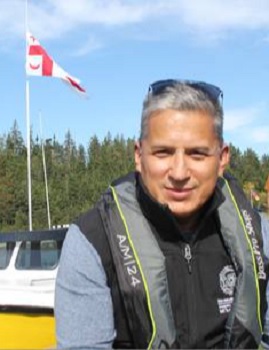
Mi’kmaq drop civil lawsuit, shift legal tactics in moderate livelihood fishing battle
The decision represents a shift in legal tactics, not an end in their battle with the Department of Fisheries and Oceans. In a news release issued Monday, the assembly said it will put its resources into the defence of a Potlotek harvester fishing under a plan approved by the community. The lawsuit was seeking an injunction to prevent the Department of Fisheries and Oceans (DFO) from interfering with Potlotek’s self-regulated moderate livelihood lobster fishery. The release said the assembly and Mi’kmaw communities have limited resources and cannot afford to be involved in a civil action while also defending against fisheries prosecutions. >click to read< 07:52
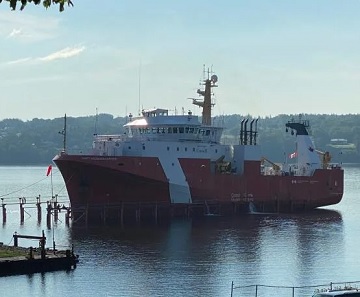
Fall fish stock surveys won’t happen again
The Department of Fisheries and Oceans says 2022 will be another year without fish stock surveys, as it prioritizes transition work needed to replace older vessels in an aging fleet. The scientific surveys are used to assess the health of major fish stocks and are critical in determining quotas for commercial fisheries worth hundreds of millions of dollars in Atlantic Canada. Those inside the industry say DFO is falling short on their mandate and can’t make the most informed decisions on future quotas due to the limited data. >click to read< 07:33
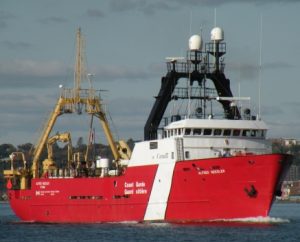
Repeated Failures: DFO ship woes hampering East Coast science surveys
DFO has missed multiple surveys as it struggles to bring new offshore fishery science vessels into service, and aging ships near retirement. Sailing restrictions imposed early in the COVID-19 pandemic contributed to the problem, but so too have breakdowns on older ships and part replacements needed on the two new ships stationed on the East Coast. The science surveys are used to assess the health of major fish stocks and are critical in determining quotas for commercial fisheries worth hundreds of millions of dollars in Atlantic Canada. “There’s huge consequences. We want to know what’s going on. We need the data,” said Carey Bonnell, vice-president of sustainability and engagement at St. John’s-based Ocean Choice International, which is a seafood company. >click to read< 08:13
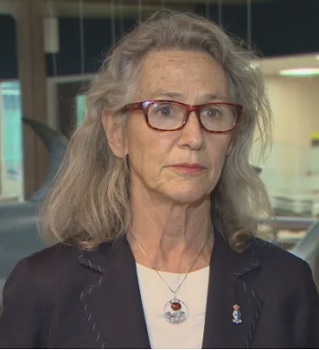
Canada proposes 62 fish stocks for sustainability protection
The Department of Fisheries and Oceans has proposed adding 62 stocks to a regulatory list that binds the minister to rebuild them if they become depleted. In April the first batch of 30 was added. On Oct. 19 the department released a second batch of 62 stocks for public consultation. Comments close Dec. 19. Most stocks in the second batch are considered healthy, but candidates also include three stocks in trouble: cod and herring off southern Nova Scotia and yellowtail flounder in the Gulf of St Lawrence. Speaking to an Oceana conference on restoring fish populations in Ottawa last week Fisheries Minister Joyce Murray pledged to work toward that goal. >click to read< 10:07

Science fishery or FFAW quota, DFO refusal to release catch data from sentinel fisheries raises conflict of interest concerns
Seaward Enterprises Association of Newfoundland and Labrador accuses Fisheries and Oceans of treating the FFAW-run, science-based sentinel cod fisheries like a commercial quota in refusing to release catch data — raises serious conflict of interest concerns. “DFO says on one hand the sentinel fisheries are for science, but on the other hand refuses to release details under federal Treasury Board guidelines for the release of commercial catch information,” says Ryan Cleary, SEA-NL’s Executive Director. “DFO seems to be saying the FFAW has a cod quota, which raises serious questions of conflict of interest between the union and inshore owner-operators.” >click to read< 15:16
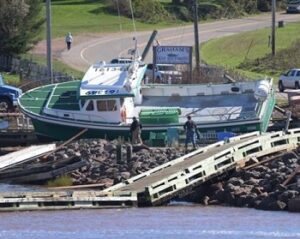
Ottawa earmarks $100 million for lost fishing gear, repair to harbours – $300-million fund for Atlantic Canada not enough, fishermen say
The federal government says $100 million from its hurricane Fiona fund will be earmarked for the recovery of lost fishing gear and the repair to small-craft harbours across Atlantic Canada and eastern Quebec. The federal Fisheries Department says in a news release the money will come from the $300 million Ottawa set aside for fishers, communities and companies affected by post-tropical storm Fiona, which made landfall on Sept. 24. >click to read< $300-million fund for Atlantic Canada not enough, fishermen say – Fishermen on P.E.I. say the federal government’s $300-million fund for Atlantic Canada is a good start to recover from post-tropical storm Fiona but falls far short of what is needed. It will cost millions just to fix the wharf at Covehead Harbour alone, said Allan Coady. >click to read< 09:26
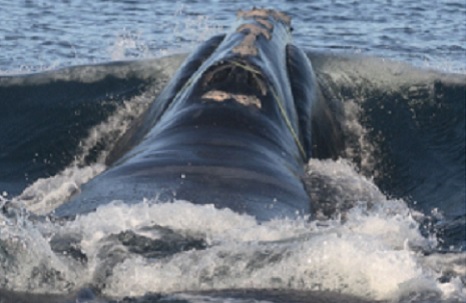
Nova Scotia: Indigenous lobster fishermen not required to observe whale closure
A Department of Fisheries and Oceans fishery closure in Nova Scotia this week to protect endangered North Atlantic Right Whales will not apply to Indigenous lobster fishermen in the area. The department is allowing ceremonial lobster fishing in St. Marys Bay to continue, raising concerns about conservation and fairness. All commercial crab and herring fisheries with unattended gear in the water are being ordered out of St. Marys Bay effective 5 p.m. on Thursday, which is standard practice after sightings. Dan Fleck of the Brazil Rock 33/34 Lobster Association represents commercial fishermen in the area. He said he’s been getting calls from concerned fishermen this week. “I would expect that the rules would be applied fairly and equitably amongst all resource users,” Fleck said. >click to read< 08:01
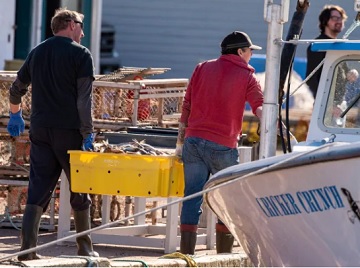
P.E.I. fishermen seek province’s help in wake of herring, mackerel moratorium
In March, the federal DFO put a moratorium on commercial fishing for herring in the Gulf of St. Lawrence and mackerel across the East Coast, saying urgent action is required to allow the stocks to recover. Fishers were not pleased, and said a complete moratorium goes too far. “This has been a devastating and direct blow for these fishers,” said Molly Aylward, the association’s executive director, appearing before a legislative standing committee on natural resources. The P.E.I.F.A. represents independent core fishers who depend on the commercial herring and mackerel fishery for their main source of income, as well as lobster fishers who use the fish for bait, often fishing it themselves to keep their costs down. >click to read< 09:17
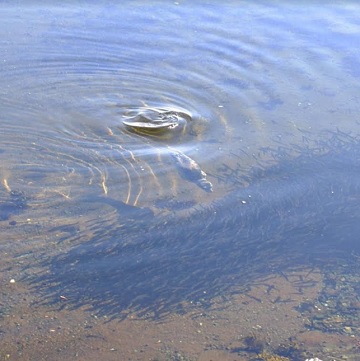
Make-or-break moment for province’s Liberal MPs; seal vote goes before Parliament on Wednesday
Seaward Enterprises Association of Newfoundland and Labrador (SEA-NL) is calling on the province’s six Liberal Members of Parliament to vote for a bill before Parliament Wednesday (July 15th) that would force Fisheries and Oceans to implement seal management plans. “This is one of those make-or-break moments for our Members of Parliament when they must decide whether they represent Newfoundland and Labrador in Ottawa or the other way around,” says Ryan Cleary, Executive Director of SEA-NL, and a former NDP MP. “Seals eat fish just as surely as MPs need votes.” Bill C-251 calls on the federal minister of Fisheries and Oceans to develop management plans for pinnipeds — including seals, sea lions, and walruses on the East and West coasts and Northern Canada. >click to read< 09:00
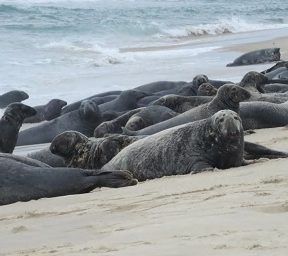
DFO: Atlantic Canada Grey Seal population is slowing
The grey seal population in Atlantic Canada continues to grow and is now estimated at 366,000, according to the 2021 stock assessment released Thursday by the Department of Fisheries and Oceans. But DFO says the population is growing at a much slower rate than in previous years and for the first time in 60 years it is believed pup production has decreased on Sable Island. Scientists used a new model to estimate the population in the latest report. It converted pup production numbers from aerial surveys to total population by combining reproductive and survival rates with the small number harvested by humans. Applying the new modelling to its 2016 estimate produced a sharply lower result. >click to read< 13:44

DFO: ‘no plan’ to cut commercial lobster catches to implement treaty fishery
The issue has swirled through Maritime coastal fishing communities since the federal government relaunched a voluntary commercial licence buy-back program last year to make room for more Mi’kmaw access, so far without success. The departmental statement followed a response from Fisheries Minister Joyce Murray to Conservative fisheries critic Rick Perkins during Question Period Monday. “DFO sources tell me the minister was about to expropriate 15 per cent of lobster traps from licence holders, without compensation, to give to First Nations,” Perkins said Monday. “This would be devastating for these fishermen. >click to read<13:43

DFO enacts new regulations aimed at depleted fish stocks
The Department of Fisheries and Oceans has enacted new regulations that bind its minister to rebuilding Canada’s depleted fish stocks and ensuring healthy ones stay that way, a move that comes weeks after it closed down two East Coast fisheries in the name of sustainability. The regulations are the teeth behind amendments to the Fisheries Act passed in 2019 and have been closely watched by the commercial fishing industry and environmentalists. The changes were posted Wednesday in the Canada Gazette. It identified 30 major fish stocks that will require a rebuilding plan,,, The minister for the department will have up to three years to produce a rebuilding plan once the stock has hit the limit reference point. >click to read< 16:32
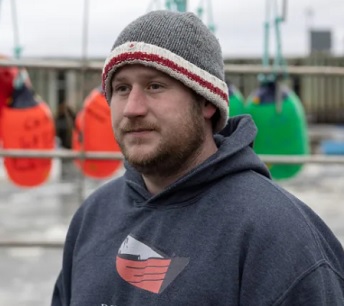
Atlantic Canada seafood sectors surged in 2021
In Riverport on Nova Scotia’s south shore, lobster fisherman Jason Conrad remembers when the pandemic hit in the spring of 2020 and the price of lobster plummeted to $4 a pound — below what it cost him to catch a lobster. Last month, Conrad was getting over $14 a pound — a sign of industry recovery that began at the end of 2020. “It rebounded way faster than I thought it would,” he said. Snow crab increases huge, A Banner year for lobster, More money for repairs, new boats >click to read< 10:25
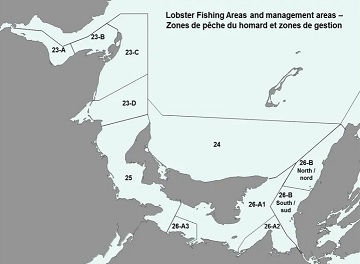
DFO says it is considering request from P.E.I. fishermen to change lobster setting dates
The federal government is considering allowing P.E.I. lobster fishermen to start the spring season earlier than normal. Krista Petersen, a spokeswoman with the Department of Fisheries and Oceans Gulf Region,,, “Before DFO makes any decisions on requests for season date changes, proposals need to be discussed with all groups who fish in a particular lobster fishing area,’’ Petersen said in an email. “Issues related to safety, weather, ice conditions and harbour dredging will be taken into consideration.’’ >click to read< 10:48

DFO responds to Ryan Cleary’s allegations of a ‘backroom’ plan
The interim executive director of Seaward Enterprises Association of Newfoundland and Labrador accused the Department of Fisheries and Oceans of orchestrating a “backroom” plan to rebuild the cod stock off southern Newfoundland and exclude the voice of inshore harvesters. According to Cleary, DFO has assembled a working group, made up of DFO and FFAW union officials, fish processors, indigenous interests and the offshore, sector to develop a rebuilding plan for cod in the 3Ps fishing zone. An official for DFO, however, says when DFO established the working group they invited members of the 3Ps Groundfish Advisory Committee to participate. >click to read< 13:32

Harbour Breton in Mourning Following Fatal Fishing Accident
The town of Harbour Breton is in mourning after a fishing accident took the life of a man over the weekend. Three men were aboard the scallop vessel on Sunday morning when it overturned near the community. Robert Hynes, training officer with the Harbour Breton Fire Department, describes how one of the men was able to swim to shore and get help. He says the boat was situated in the middle of a sheltered part of the bay. The man swam through the frigid water, and once on land walked through the woods to get to a cabin. >click to read< 10:35

One Person Dead After Scallop Vessel Overturns Near Harbour Breton
One person is dead following a fishing accident near Harbour Breton on Sunday. According to the Department of Fisheries and Oceans, a scallop vessel with three people on board overturned Sunday morning. One of the three swam to shore for help, while the other two people stayed with the overturned vessel. The two people were recovered following a local rescue effort. >click to read<, more info, >click to read< This story will be updated 09:23
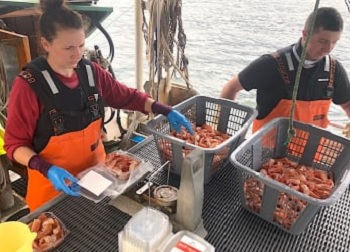
DFO puts B.C.’s prized spot prawn fishery in peril again
A swell of outrage is rising again as the Department of Fisheries and Oceans revisits regulation changes that independent harvesters say will sink B.C.’s local spot prawn industry. Last spring, DFO put its previously proposed regulations concerning the freezing and packaging of prawns in saltwater while at sea, called “tubbing”, on hold due to backlash by a number of critics and small-scale fishers just prior to the opening of the season. But half a year later, and without any meaningful consultation with stakeholders, DFO is imposing new regulations,,, “It’s like they’re hitting a fly with a sledgehammer,” >click to read< 18:58
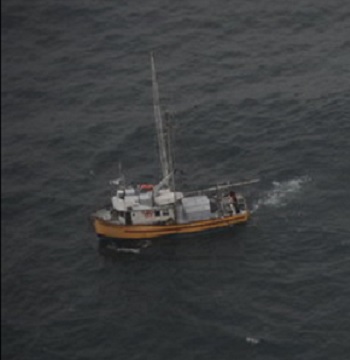
From DFO: Routine fishery inspection leads to significant penalties for a North Coast commercial salmon harvester
On July 2, 2021, Garry Dean Stoner was sentenced in Terrace Provincial Court after pleading guilty to 12 counts under the Fisheries Act for violations that occurred between June and September 2017, and in July and August 2018, in waters north of Haida Gwaii. The Honourable Justice Calvin Struyk ordered the commercial salmon harvester to pay $1,200 in court fines, plus $42,800 in penalties,,, Justice Struyk included an additional $44,644 penalty to recover revenue obtained through the sales of the illegally caught Chinook salmon. Mr. Stoner was also prohibited from commercial salmon fishing for 18 months. >click to read< 15:39

NLGIDC provides commentary on the latest scientific assessment for 3Ps Cod
The stock is currently at a low level and growth of this important resource is being impeded by high natural mortality. Jim Baird, The Chairman of the NLGIDC said, “The level of natural mortality has been at the highest levels ever recorded for this stock in the most recent time period.” Baird continued, “Having a better understanding of the processes related to natural mortality is important to provide scientists the ability to make accurate projections related to stock growth.” It is clear that seals eat substantial quantities of cod and many industry representatives believe that seal consumption is likely contributing to this high natural mortality, however DFO scientists are not convinced this is the case. >click to read< 19:56
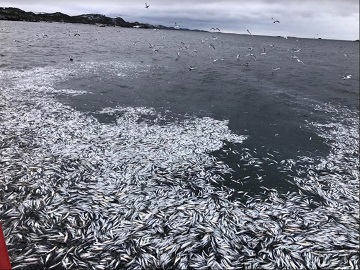
Hundreds of thousands of pounds of herring dumped last week due to backward DFO policy
Seaward Enterprises Association of Newfoundland and Labrador condemns the Department of Fisheries and Oceans policy that allowed for the dumping of hundreds of thousands of pounds of herring last week alone. “Any DFO policy that allows for the dumping of fish is a backward policy that must end immediately,” says Ryan Cleary, SEA-NL’s interim Executive Director. “Fishermen should be permitted to land the herring they catch, with the total amount subtracted from the overall quota.” Herring fishermen here in the province say hundreds of thousands of pounds were dumped last week alone as the result of federal policy that sets the small-fish tolerance at 20%. >click to read< 12:35
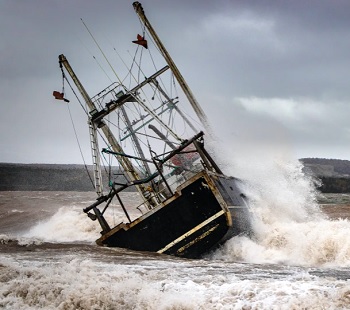
Owner of vessel aground in Cape Breton en route to recover it – “I’m hoping to get aboard,,,
A Newfoundland man whose family purchased a fishing vessel three weeks ago was on his way to Cape Breton Thursday afternoon to work on recovering it. Jeremy Anstey, of the family-owned Anstey Fisheries in Summerford, N.L., said the Northern Tip is one of four vessels in his family’s fleet that he manages. Although they had just purchased the boat, about two weeks ago they leased the vessel to a First Nations band in Cape Breton. While being leased out, the vessel broke from the mooring in stormy weather and went aground in Iona on Wednesday. “I’m hoping to get aboard (Friday) to see if there’s any damage,” he said, adding it looks fairly sandy where it went aground, so he’s hopeful. photos, >click to read< 12:40
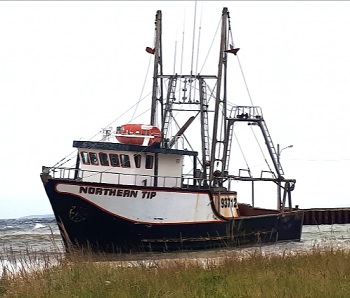
Canadian Coast Guard responds to fishing vessel aground in Iona
“The boat is on its side now, very, very close to the beach,” said Jim MacNeil, a resident of Iona, late afternoon Wednesday, adding conditions were stormy at the time. Stephen Bornais, a spokesperson with the Department of Fisheries and Oceans, said the coast guard was made aware of a fishing vessel that was aground after breaking free from the wharf in Iona, Wednesday morning. There were no individuals on board when the report was received. >click to read< 07:10
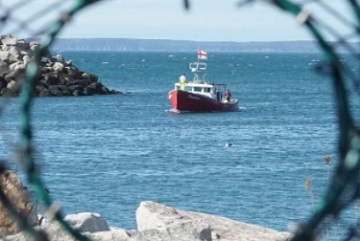
4 Mi’kmaw bands launch moderate livelihood fisheries with government approval
In a news release Wednesday, the Assembly of Nova Scotia Mi’kmaw Chiefs said the treaty fisheries will happen in the Acadia, Annapolis Valley, Bear River and Glooscap First Nations. The group said the Kespukwitk District Netukulimk Livelihood Fisheries Plan will start Thursday, though not all communities will launch then. The Mi’kmaw chiefs said they are following the path set out by the Potlotek First Nation to fish and co-operate with the Department of Fisheries and Oceans.,, The Unified Fisheries Conservation Alliance, which represents commercial fishers, said its members support the deal. “We believe this is an important step in the right direction,,,” >click to read< 19:31

Nova Scotia fishing industry granted intervenor status in Mi’kmaw treaty rights case
The ruling Friday afternoon by Supreme Court Justice John Keith gives the Unified Fisheries Conservation Alliance standing in a proceeding against the Canadian government by the Potlotek First Nation. The Cape Breton band is seeking an injunction to prevent the Department of Fisheries and Oceans from interfering with its self-regulated moderate livelihood lobster fishery. It wants a court declaration that enforcement of the federal Fisheries Act infringes on its treaty right to earn a moderate living from fishing. In an oral decision, Keith said UFCA’s intervention would not unduly delay, prejudice or politicize Potlotek’s case. He said as a group representing fishers using the same shared and finite resource, UFCA has a direct interest in the case. >click to read< 17:45
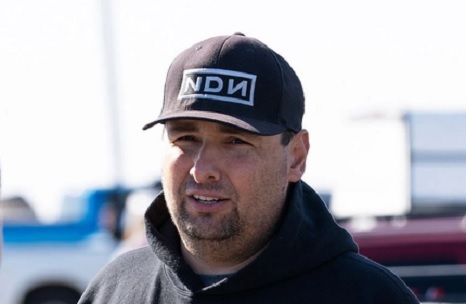
Arrested by the Feds! Chief Mike Sack busted “for promoting an illegal fishery.”
The chief of Sipekne’katik First Nation has been arrested by federal fisheries officers on the day the band’s new treaty fishery launched in southwest Nova Scotia. Chief Mike Sack was arrested on Monday, taken to the Meteghan fisheries office and later released. DFO has not provided details of why Sack was arrested, or whether he could face charges under fisheries legislation. ‘Why would you arrest me? I haven’t done anything here,'” he said. “It just seems to be all scare tactics for the fisheries, to try to stop what we have going on.” >click to read< 15:59






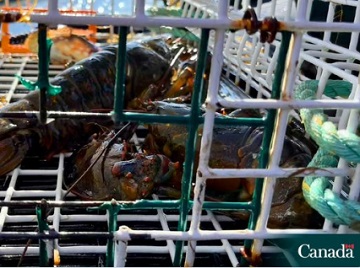
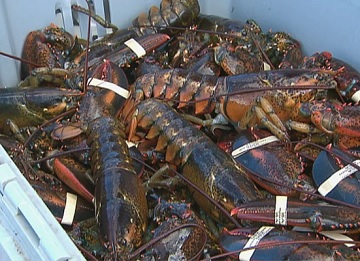
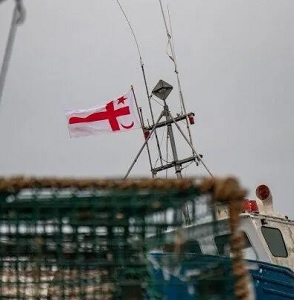



























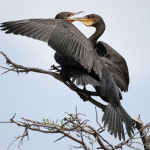

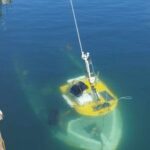

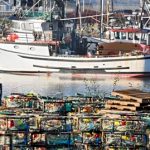
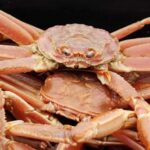
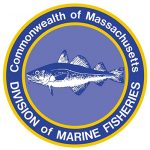
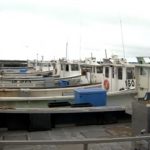


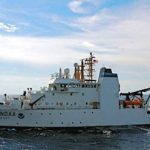
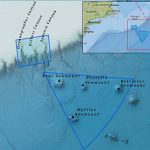
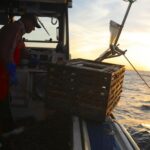
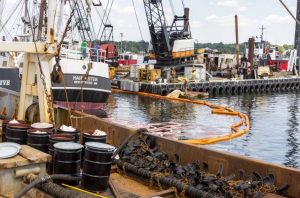



Trudeau Comments On Moderate Livelihood Fisheries
The Prime Minister says the federal government continues to work on implementing moderate livelihood fisheries with Indigenous communities. Justin Trudeau says reconciliation is important, but the fishery needs to be done right. “We’ve been engaged in very very close dialogue, both with commercial fishers and Indigenous communities to establish the right path forward,” >click to read< 09:23
Share this post